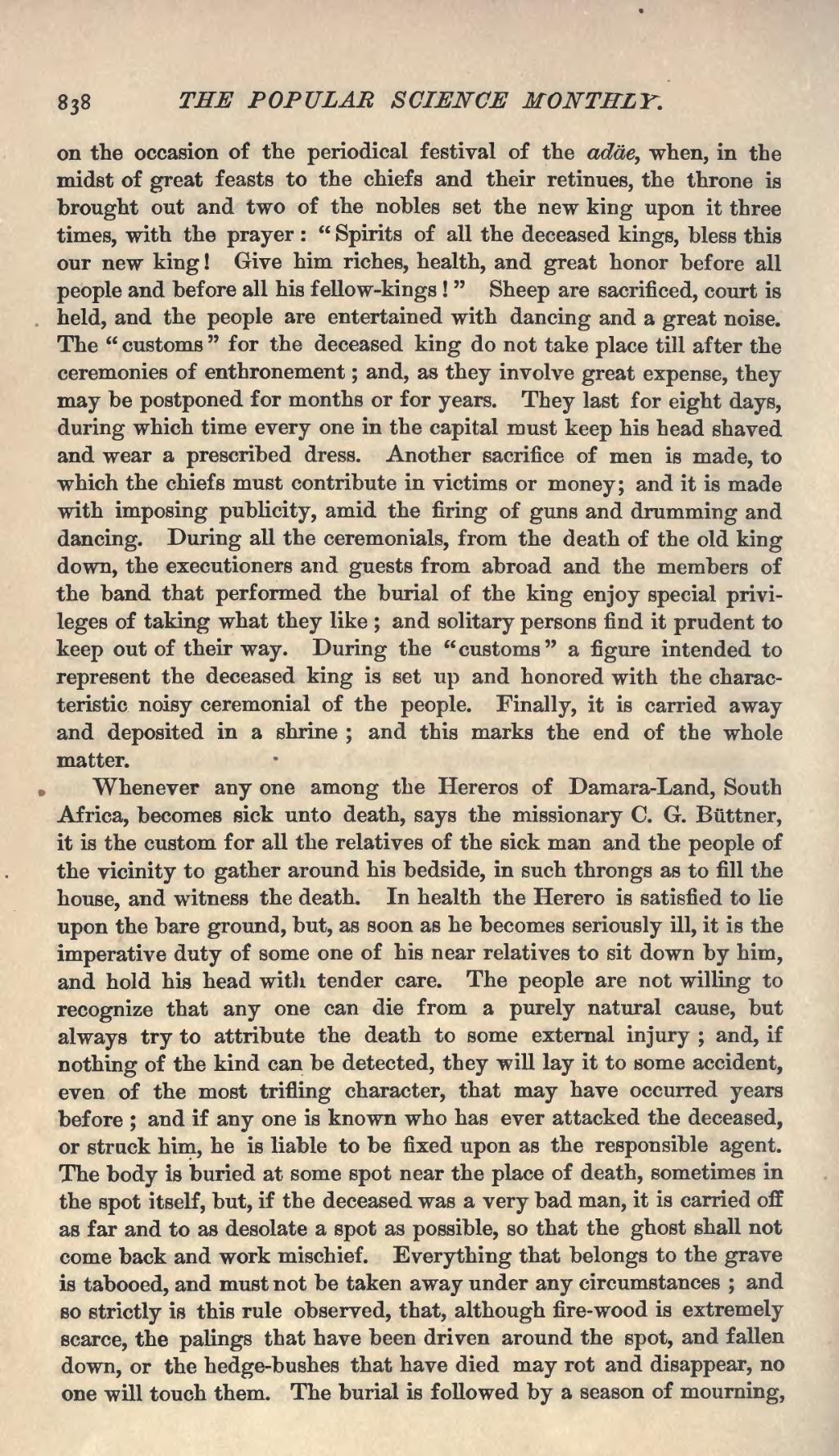on the occasion of the periodical festival of the adäe when, in the midst of great feasts to the chiefs and their retinues, the throne is brought out and two of the nobles set the new king upon it three times, with the prayer: "Spirits of all the deceased kings, bless this our new king! Give him riches, health, and great honor before all people and before all his fellow-kings!" Sheep are sacrificed, court is held, and the people are entertained with dancing and a great noise. The "customs" for the deceased king do not take place till after the ceremonies of enthronement; and, as they involve great expense, they may be postponed for months or for years. They last for eight days, during which time every one in the capital must keep his head shaved and wear a prescribed dress. Another sacrifice of men is made, to which the chiefs must contribute in victims or money; and it is made with imposing publicity, amid the firing of guns and drumming and dancing. During all the ceremonials, from the death of the old king down, the executioners and guests from abroad and the members of the band that performed the burial of the king enjoy special privileges of taking what they like; and solitary persons find it prudent to keep out of their way. During the "customs" a figure intended to represent the deceased king is set up and honored with the characteristic noisy ceremonial of the people. Finally, it is carried away and deposited in a shrine; and this marks the end of the whole matter.
Whenever any one among the Hereros of Damara-Land, South Africa, becomes sick unto death, says the missionary C. G. Büttner, it is the custom for all the relatives of the sick man and the people of the vicinity to gather around his bedside, in such throngs as to fill the house, and witness the death. In health the Herero is satisfied to lie upon the bare ground, but, as soon as he becomes seriously ill, it is the imperative duty of some one of his near relatives to sit down by him, and hold his head with tender care. The people are not willing to recognize that any one can die from a purely natural cause, but always try to attribute the death to some external injury; and, if nothing of the kind can be detected, they will lay it to some accident, even of the most trifling character, that may have occurred years before; and if any one is known who has ever attacked the deceased, or struck him, he is liable to be fixed upon as the responsible agent. The body is buried at some spot near the place of death, sometimes in the spot itself, but, if the deceased was a very bad man, it is carried off as far and to as desolate a spot as possible, so that the ghost shall not come back and work mischief. Everything that belongs to the grave is tabooed, and must not be taken away under any circumstances; and so strictly is this rule observed, that, although fire-wood is extremely scarce, the palings that have been driven around the spot, and fallen down, or the hedge-bushes that have died may rot and disappear, no one will touch them. The burial is followed by a season of mourning,
